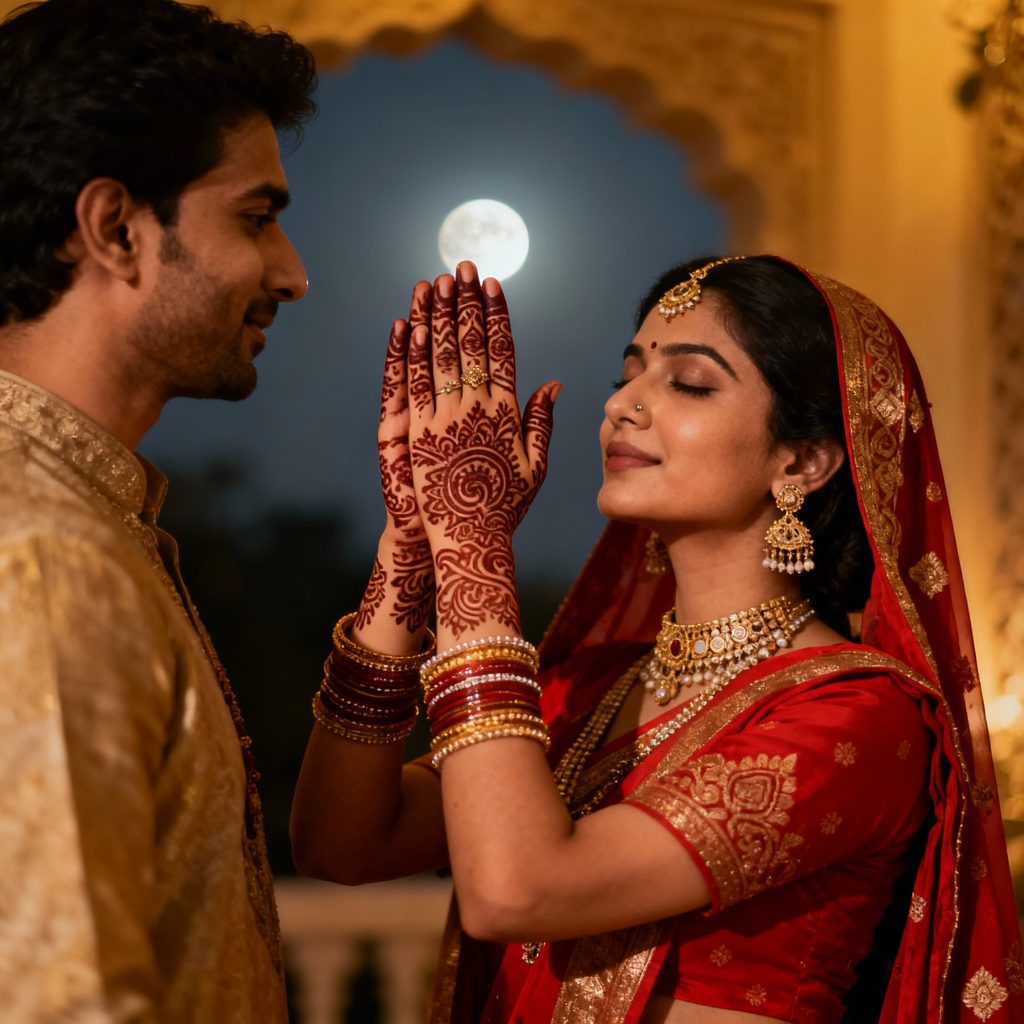Karwa Chauth is a deeply cherished Hindu festival observed primarily by married women across North India. This ancient tradition symbolizes love, devotion, and the sacred bond between husband and wife. On this day, women undertake a rigorous fast from sunrise to moonrise, praying for their husband’s long life, health, prosperity, and well-being.
Origins and Mythological Legends
The festival falls on the fourth day (‘Chauth’) after the full moon in the Hindu month of Kartik (October-November). The name ‘Karwa’ refers to an earthen pot, a significant ritual item used during the puja. The origins of Karwa Chauth are linked with several legends illustrating faith, devotion, and marital dedication:
One popular tale is that of Queen Veervati, who observed the fast with unwavering devotion even after being misled into breaking it early. Her dedication impressed Yama, the god of death, who restored her husband’s life, highlighting the power of faith and devotion.
Another beloved story is from the epic Mahabharata — Draupadi observed the Karwa Chauth fast to save the Pandavas during Arjuna’s penance. Additionally, the legend of Lady Karwa, who was spiritually empowered by her love and fasting to save her husband from danger, exemplifies the spiritual strength associated with this vrat (fast).
Rituals and Practices
The day begins before sunrise, starting with the pre-dawn meal called ‘Sargi,’ usually prepared by the mother-in-law. Throughout the day, women abstain from food and water—a practice called ‘Nirjala vrat’—demonstrating immense discipline, love, and sacrifice. Evenings are marked by gatherings where women apply mehndi (henna), adorn traditional attire, and perform prayers together.
At moonrise, the fast ends with the ceremonial offering of water to the moon (Arghya) using the earthen Karwa, followed by viewing the husband’s face through a sieve. This ritual symbolizes the spiritual union and mutual respect between husband and wife.
Spiritual and Cultural Meaning
Beyond a physical fast, Karwa Chauth represents the spiritual power of a wife’s devotion and the sacredness of marital relationships. It fosters sisterhood and community bonding among women who celebrate together far from their parental homes. The fast is believed to bring not only longevity and health to the husband but also harmony, love, and prosperity to the family.
Jain and astrological beliefs also highlight that the festival is timed when the moon and earth’s energies are balanced, enhancing the spiritual benefits and blessings from the divine.
Modern Significance
Today, Karwa Chauth is celebrated more inclusively, with many husbands observing the fast alongside their wives as a symbol of shared love and respect. The festival has evolved into a celebration of companionship and mutual devotion, reinforcing the cultural ethos of trust, love, and togetherness in marriage.
Karwa Chauth thus stands as a timeless festival that beautifully blends faith, tradition, and the enduring strength of love within the Hindu cultural and spiritual framework.
This English blog content provides a comprehensive spiritual and cultural insight into Karwa Chauth for readers interested in understanding this important Hindu tradition

